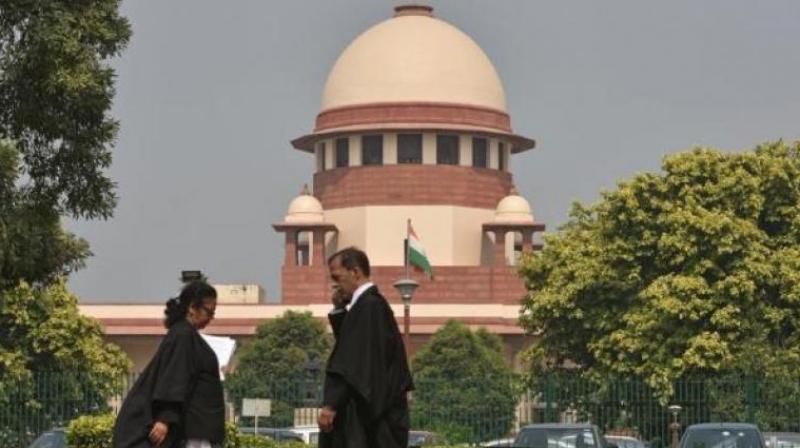SC to hear pleas related to Article 370 in July
A bench headed by CJ Ramana said it will list in July the bunch of petitions challenging the validity of the law scrapping Article 370

New Delhi: The Supreme Court on Monday said it will list for hearing in July a batch of petitions challenging the abrogation of Article 370 conferring special status to Jammu and Kashmir and the J&K Reorganisation Act 2019, which split Jammu and Kashmir into two Union territories — Jammu and Kashmir, and Ladakh.
A bench headed by Chief Justice N.V. Ramana said it will try to list in July the bunch of petitions challenging the validity of the law scrapping Article 370 as senior lawyers P. Chidambaram and Shekhar Naphade mentioned the petitions for an early hearing.
“This is the Article 370 matter... the delimitation is also going on,” Mr Naphade told the bench in a mentioning. “Let me see after (summer) vacation. This is a five-judge matter. Give details, we will list it. There are some issues with judges and bench compositions,” CJI Ramana said.
A number of petitions are pending in the court challenging the validity of the law scrapping Article 370 of the Constitution that conferred special status to J&K and bifurcating the state into two Union territories.
Subsequently, some petitions were filed against the government’s action for delimitation in accordance with the J&K Reorganisation Act 2019.
These petitions said that sweeping and irreversible changes are being brought about by the Centre that impact the rights of a large number
of people, despite the fact that the petitions challenging the abrogation of Article 370 conferring special status to J&K and bifurcation of the erstwhile state into two Union territories are pending in the top court.
The petitions have stated the Centre has constituted a delimitation
commission to mark the boundaries in the territory for all constituencies before an Assembly election can be held.
On August 5, 2019, the Central government announced its decision to
revoke the special status of Jammu and Kashmir granted under Article
370 and split the region into two Union territories.
A five-judge bench headed by Justice Ramana (who later became CJI) and comprising Justices Sanjay Kishan Kaul, R. Subhash Reddy (since
retired), B.R. Gavai and Surya Kant had on March 2, 2020, declined the plea to refer the abrogation of Article 370 conferring special status to J&K and bifurcation of the erstwhile state into two Union territories to a larger seven-judge bench.
The five-judge Constitution Bench had declined to refer the matter to a
larger seven-judge bench, noting that there was no conflict in the position taken by earlier two benches of the strength of five judges each on the interpretation of Article 370 of the Constitution -- now abrogated.
The court then said the schedule for the hearing of the main matter -- challenging the abrogation of Article 370 -- would depend on the hearing of the Sabarimala and other matters relating to gender justice and essential religious practices by a nine-judge bench.
A number of petitions have been filed in the court, including those by the National Conference, veteran journalist Prem Shankar Jha, People’s Union of Civil Liberties (PUCL), J&K High Court Bar Association, as well as private individuals, lawyers and activists, challenging the abrogation of Article 370 and the J&K Reorganisation Act, 2019.
